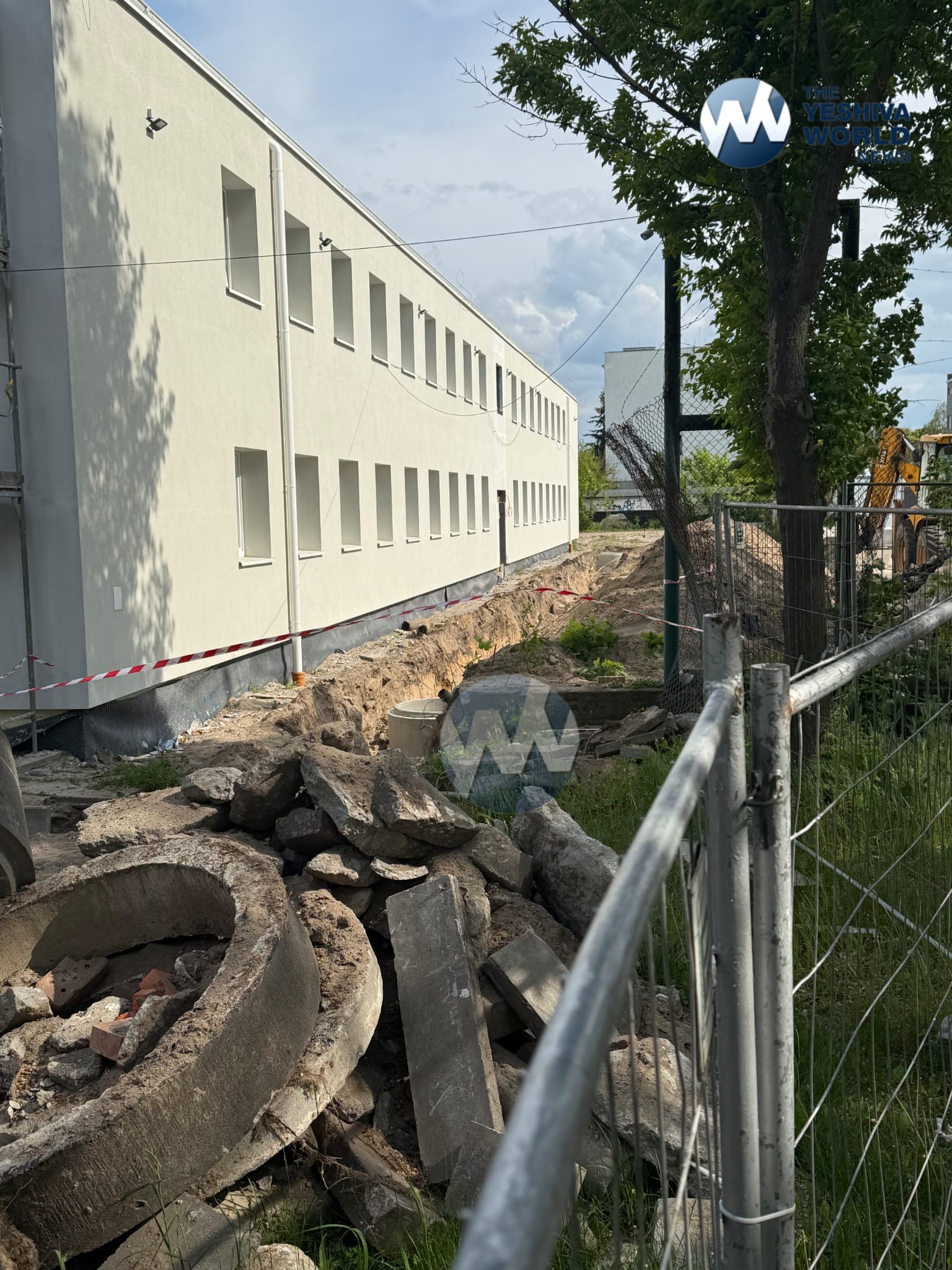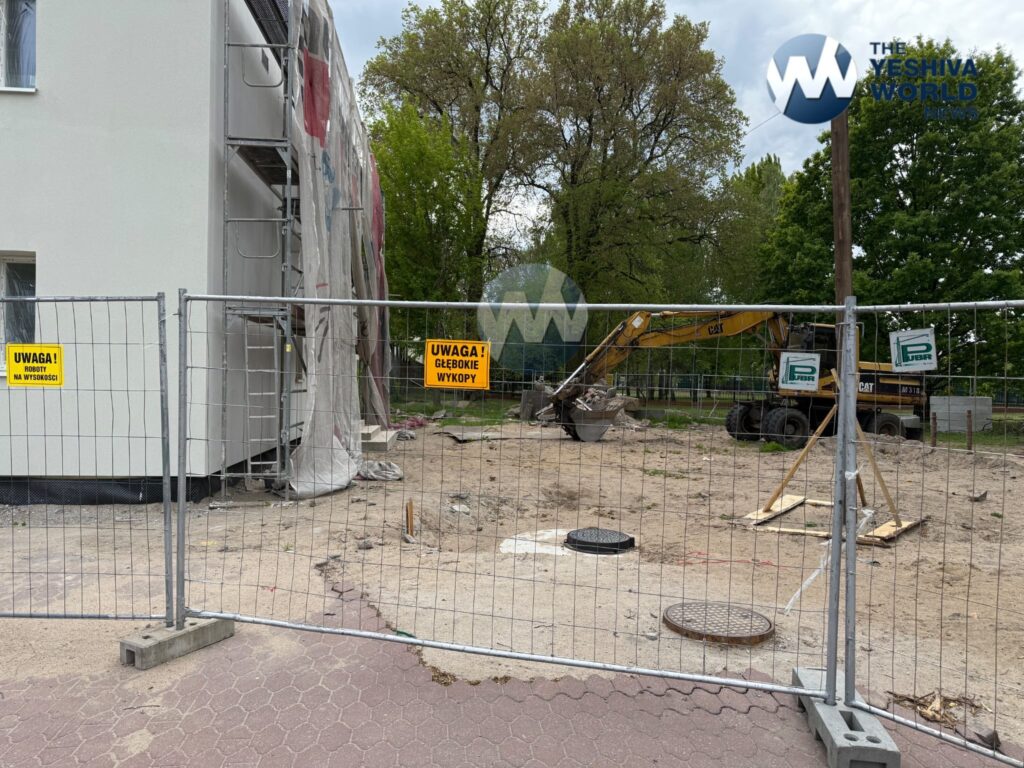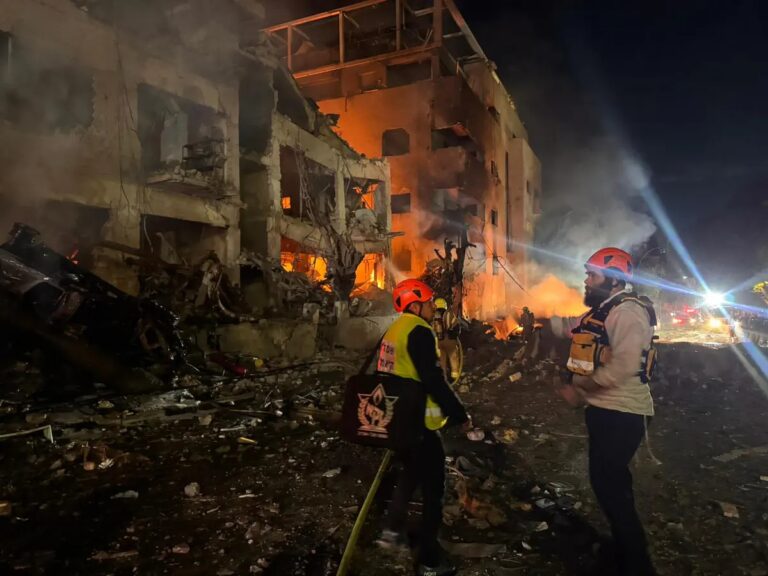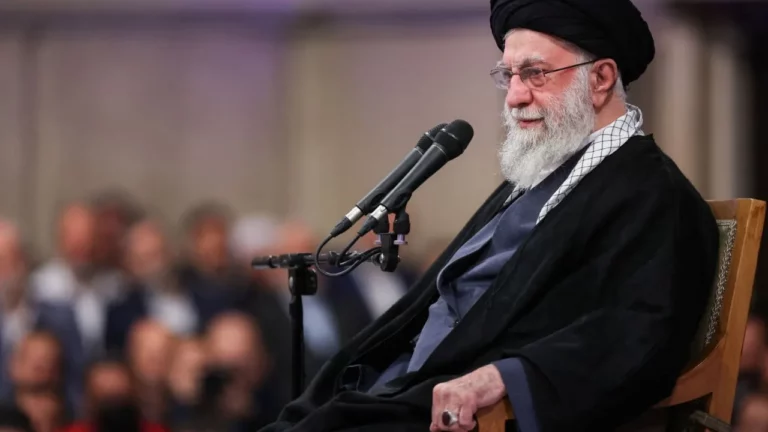A military construction project in northern Poland has ignited a storm of criticism from Jewish heritage organizations and historians, who accuse the Polish government of trampling over the remnants of a Jewish cemetery, in a move they call part of a broader, troubling trend of cultural erasure.
The Polish Army began renovations earlier this spring on a building in Bydgoszcz that was constructed after World War II on the grounds of the city’s “new” Jewish cemetery. The work commenced without formal permits or archaeological oversight, prompting an outcry from local and international preservationists concerned that human remains may be disturbed or permanently lost.
“It is not merely a question of bureaucracy or oversight,” said Yitz Farkas, director of the Ahavas Torah Association in New York, which advocates for the protection of Jewish cemeteries across Poland. “This is a cemetery. It holds the remains of men, women, and children. To carry out excavation work on such a site, without regard or reverence, is to violate something deeply human.”
The cemetery, largely unmarked today, dates back to the 19th century and served Bydgoszcz’s once-vibrant Jewish community until it was decimated during the Holocaust. In the postwar years, the cemetery was repurposed, and a military facility was built on the site. Though the graves were never formally exhumed, the land became government property, and its original function was gradually erased from public awareness.

The current renovation has been framed by the Polish Ministry of Defense as essential for national security, but no public statements have addressed concerns about the site’s history. The Kuyavian-Pomeranian Provincial Monument Conservator, Izabela Brzostowska, declined a formal request to list the site as a protected heritage location, stating that petitioners had not demonstrated “sufficient public interest.”
To many in the Jewish community, that reasoning felt hollow.
“When public interest is not enough to preserve a cemetery, what does that say about whose history is worth remembering?” asked Steve Gold, a historian and advocate for Jewish heritage in Eastern Europe. “There is a painful irony here: A nation that commemorates its war dead with honor is desecrating the graves of a murdered minority.”
Gold and others say the case in Bydgoszcz fits a wider pattern. In his recent study, Gold noted that dozens of Jewish cemeteries across Poland have either been built over or left to decay, a postwar legacy shaped by decades of neglect, urban development, and sometimes intentional disregard.
The Ahavas Torah Association has submitted formal complaints to the Ministry of Culture and the national heritage board and is in talks with international preservation bodies to intervene. Despite appeals, construction has not ceased.
“What is at stake is more than preservation,” said Farkas. “This is about how history is remembered — and whose history is allowed to survive.”
(YWN World Headquarters – NYC)











